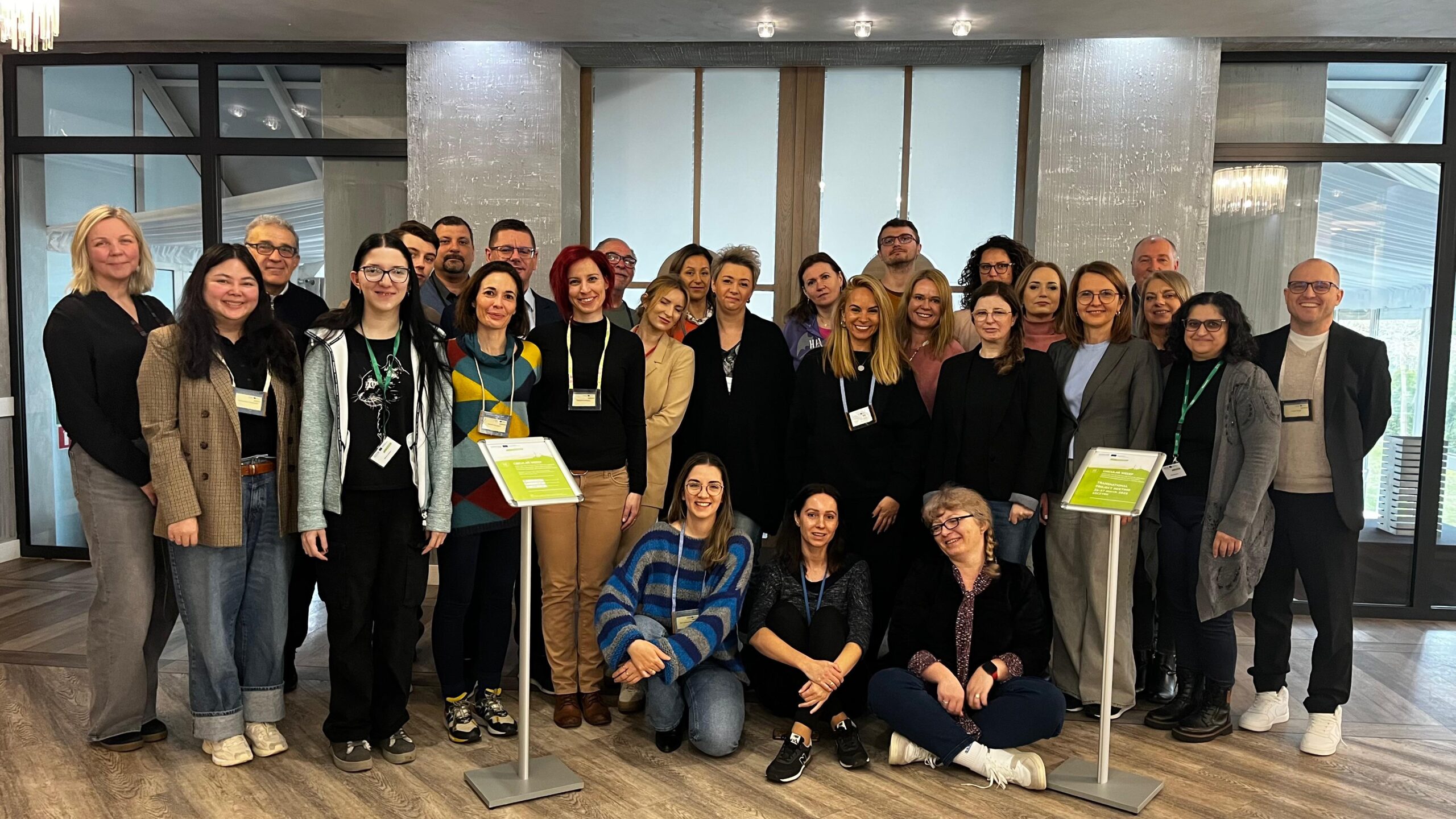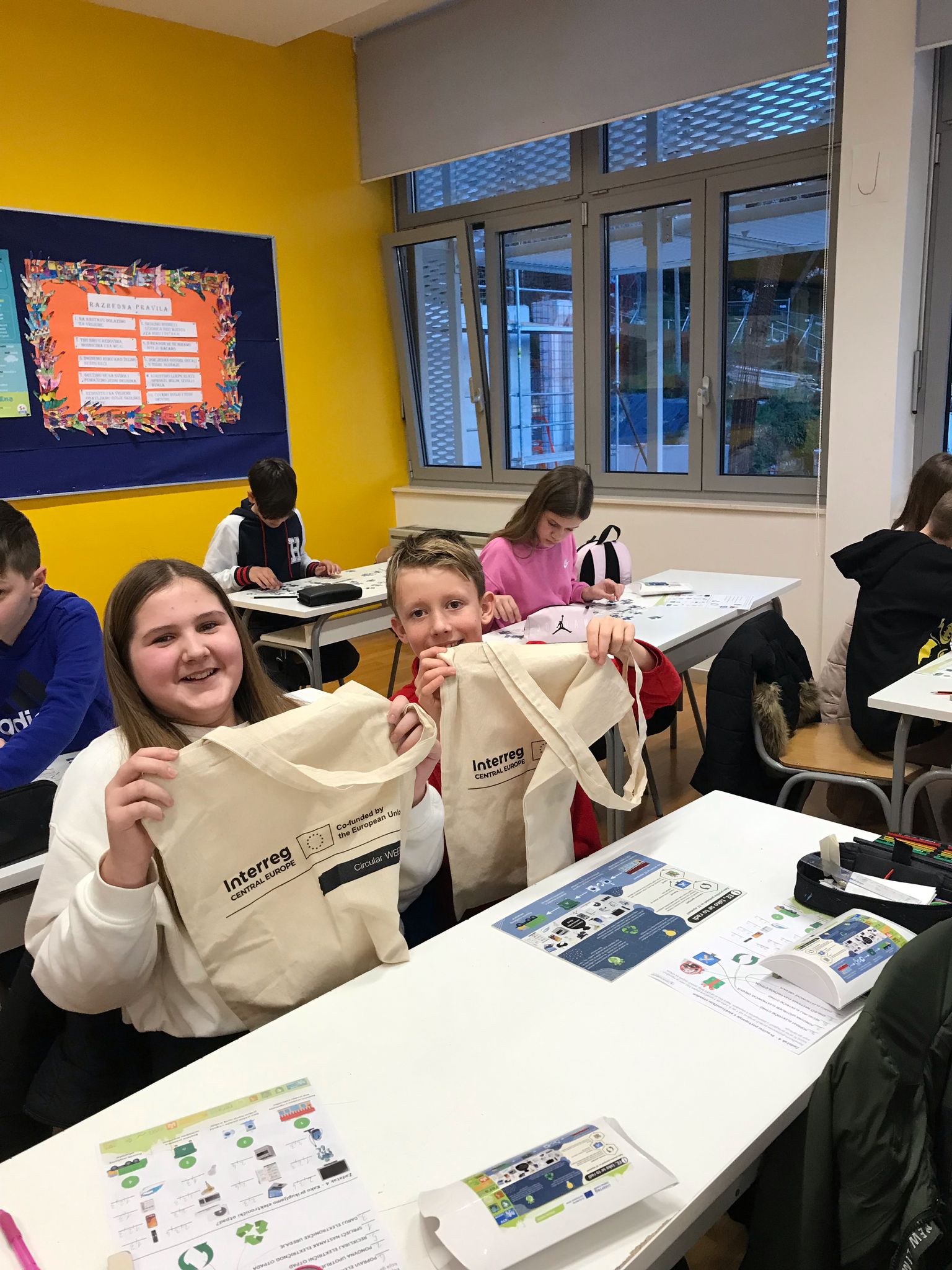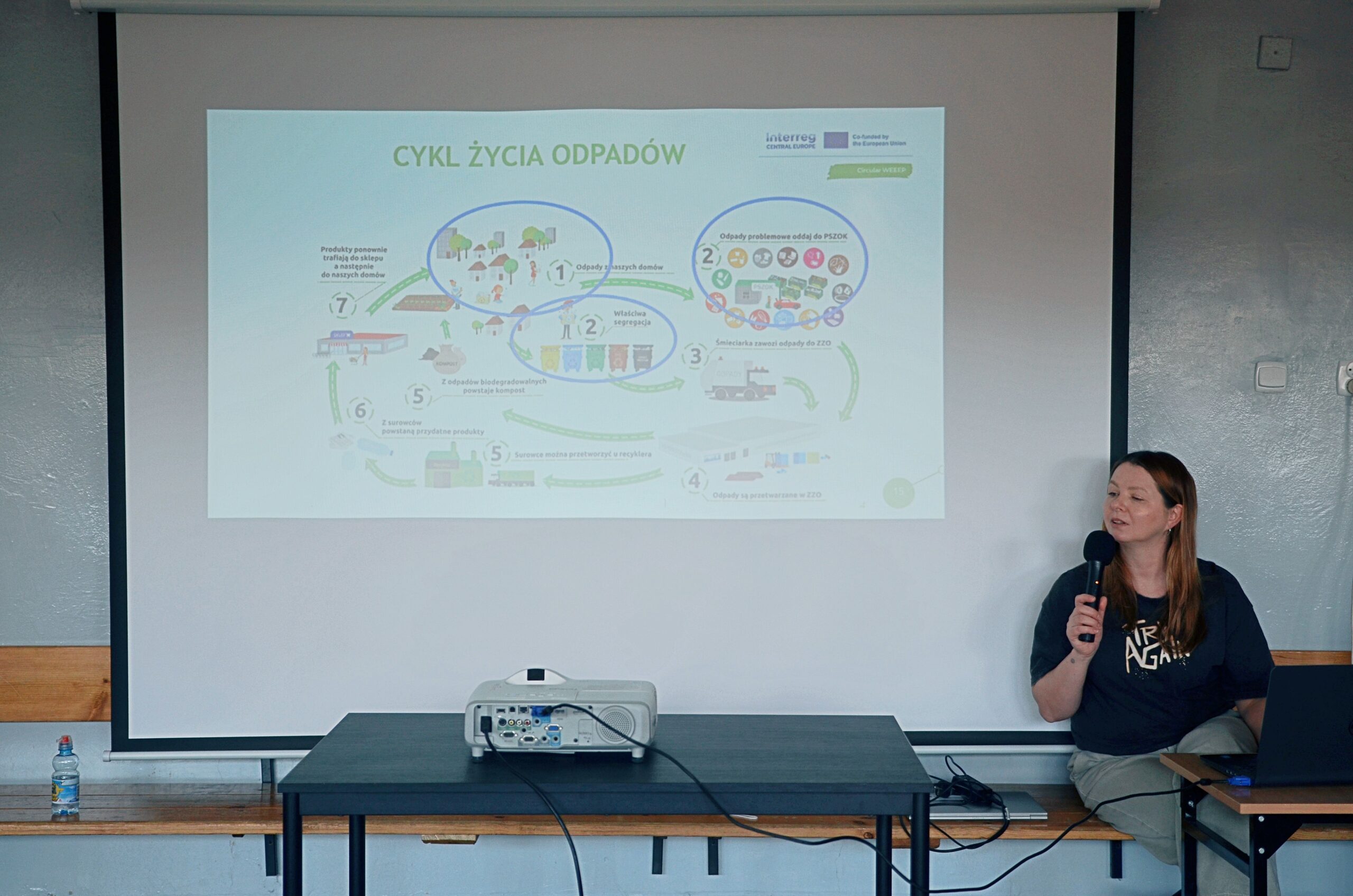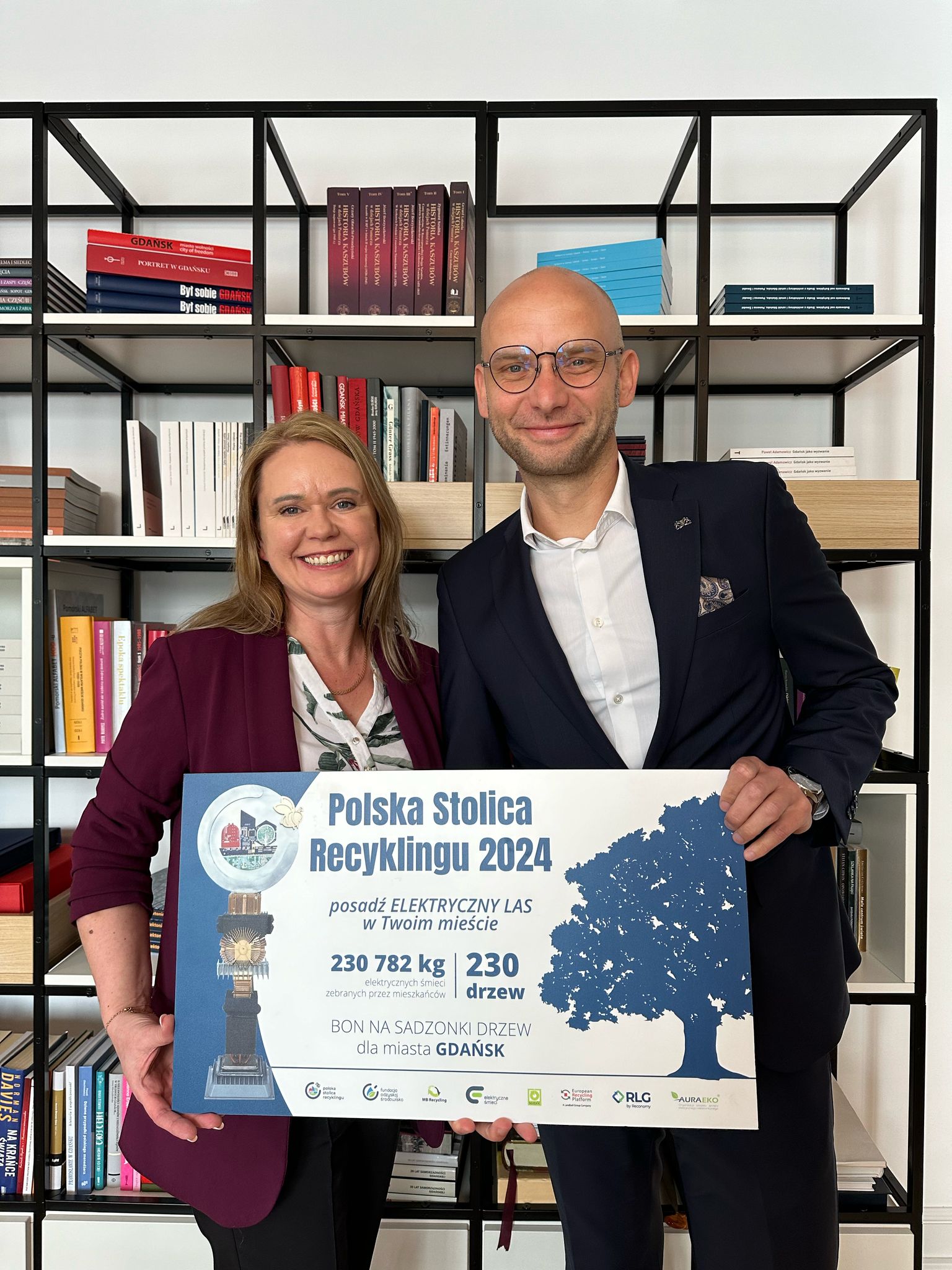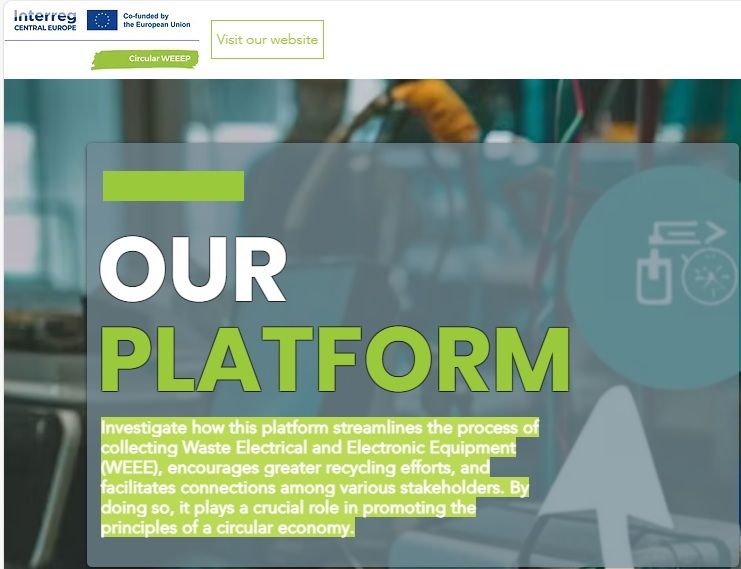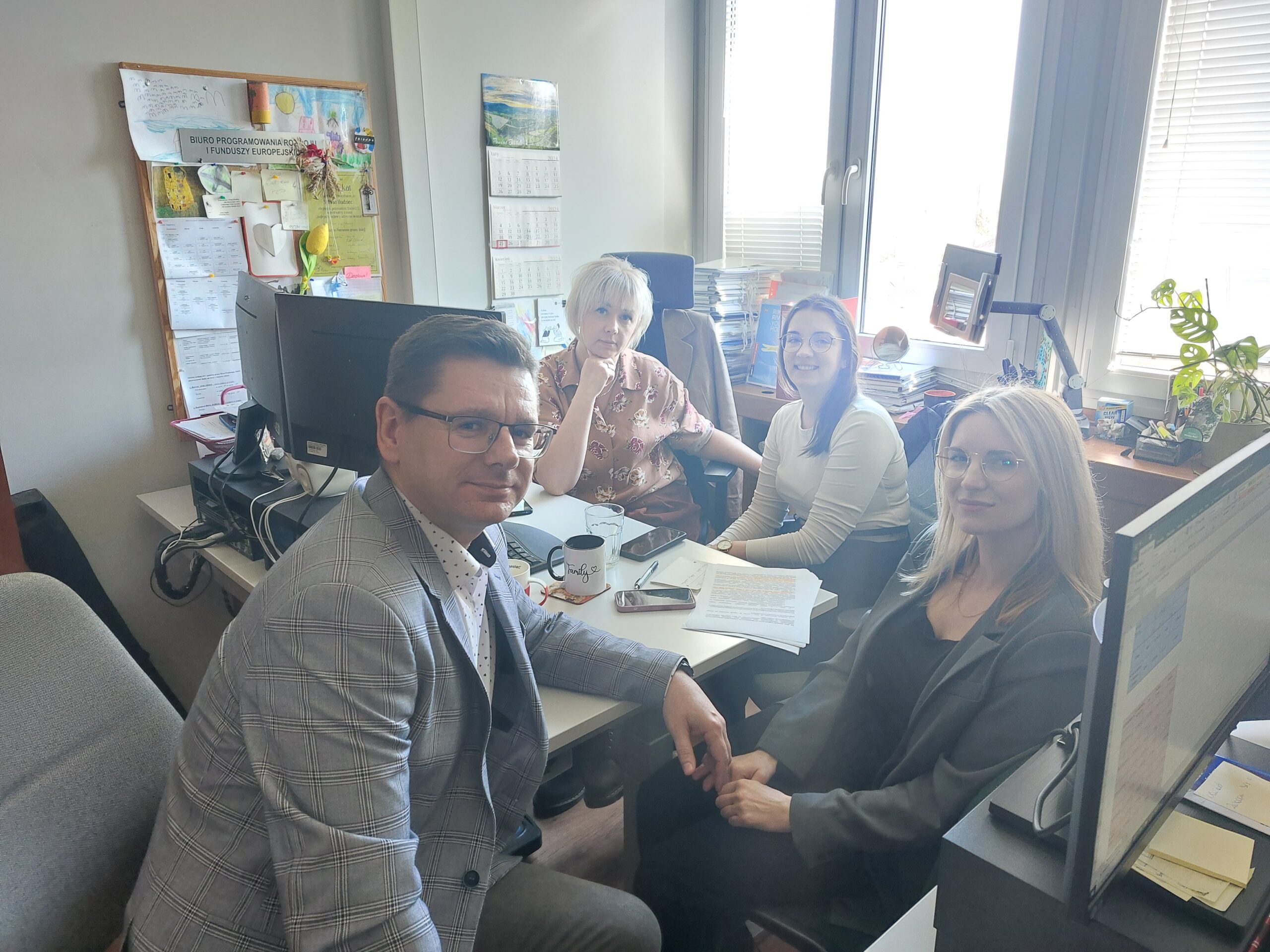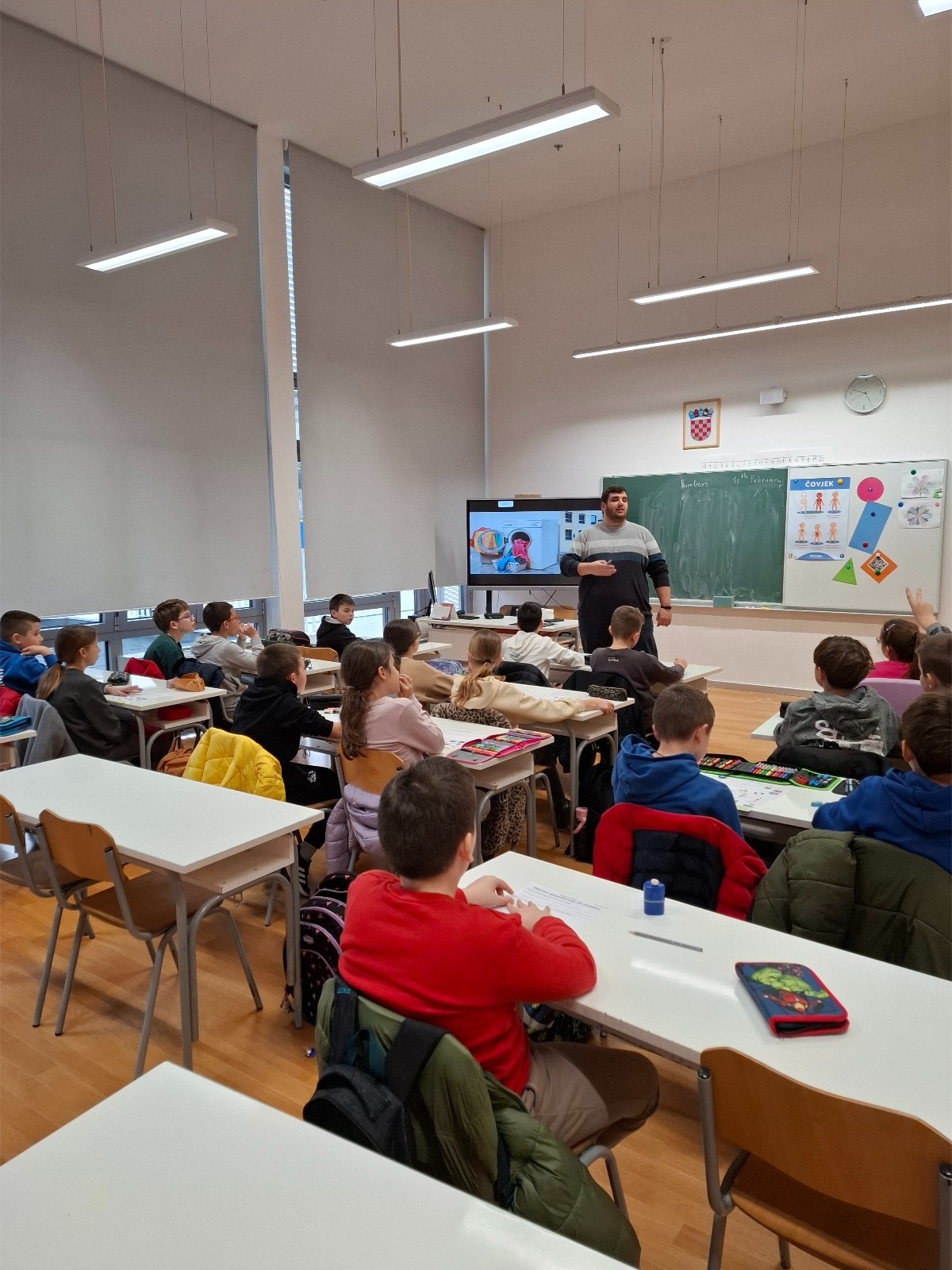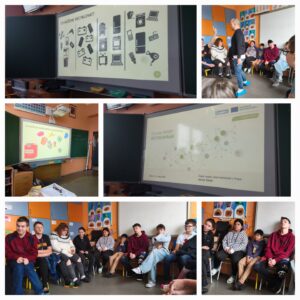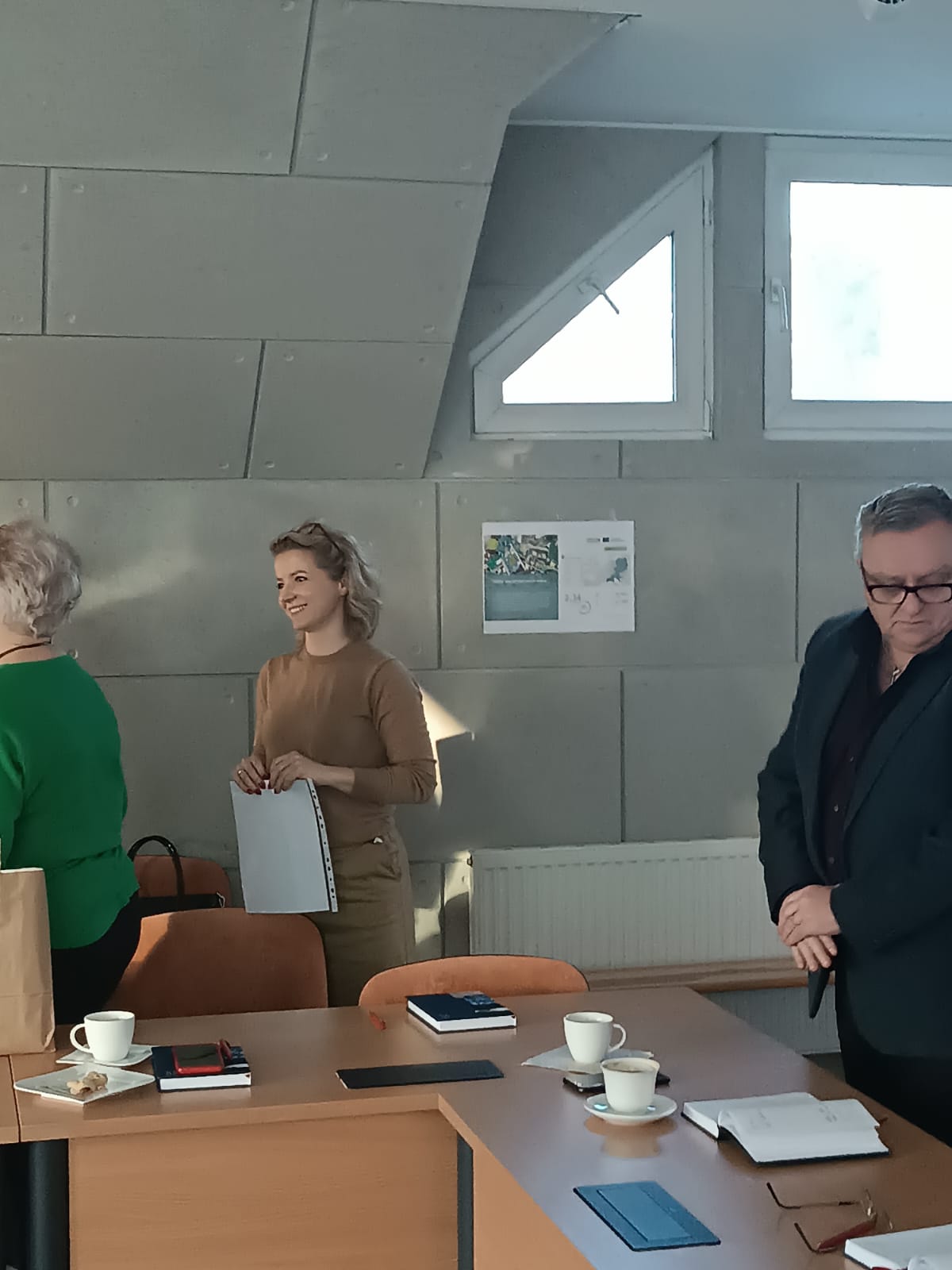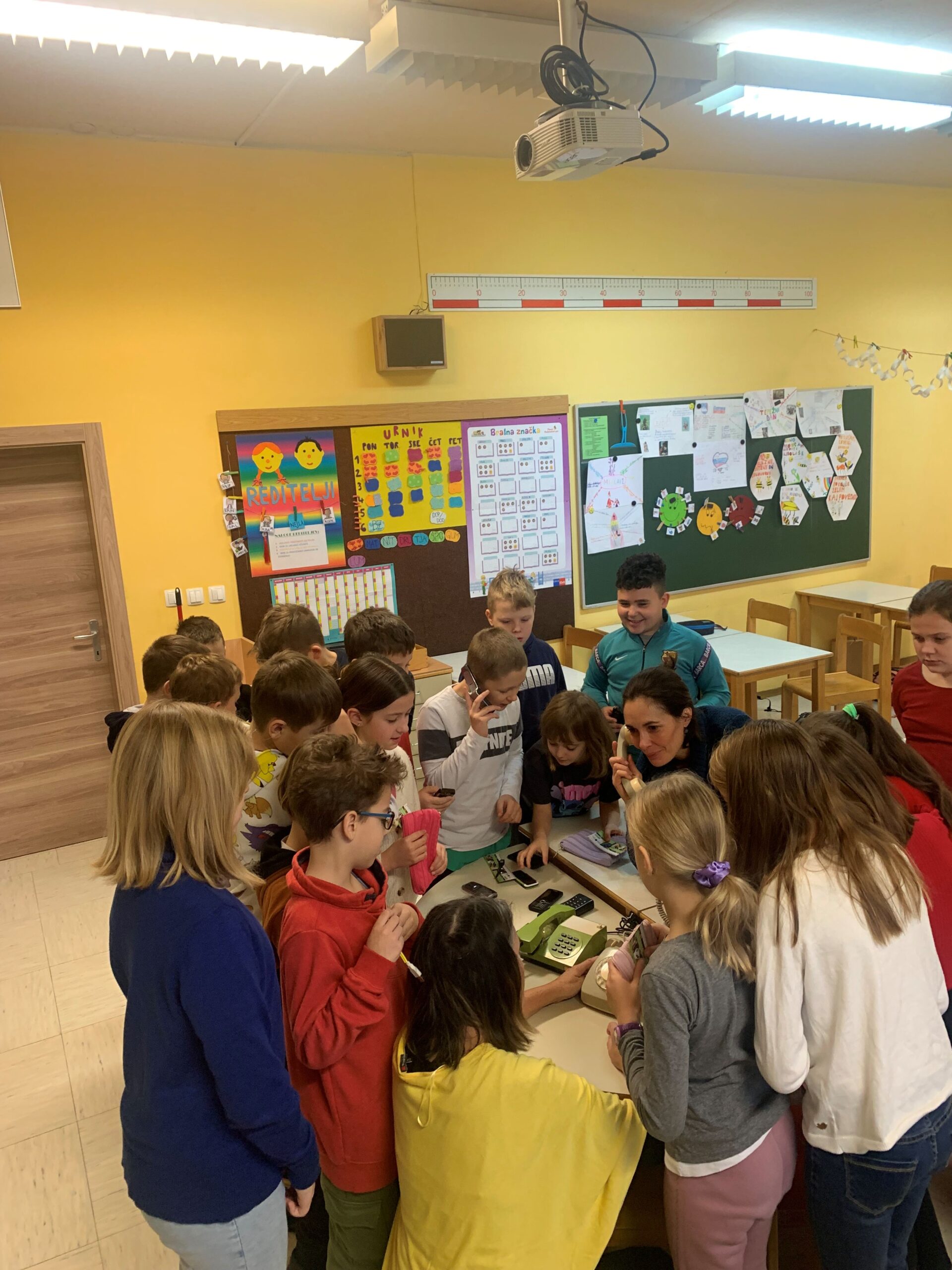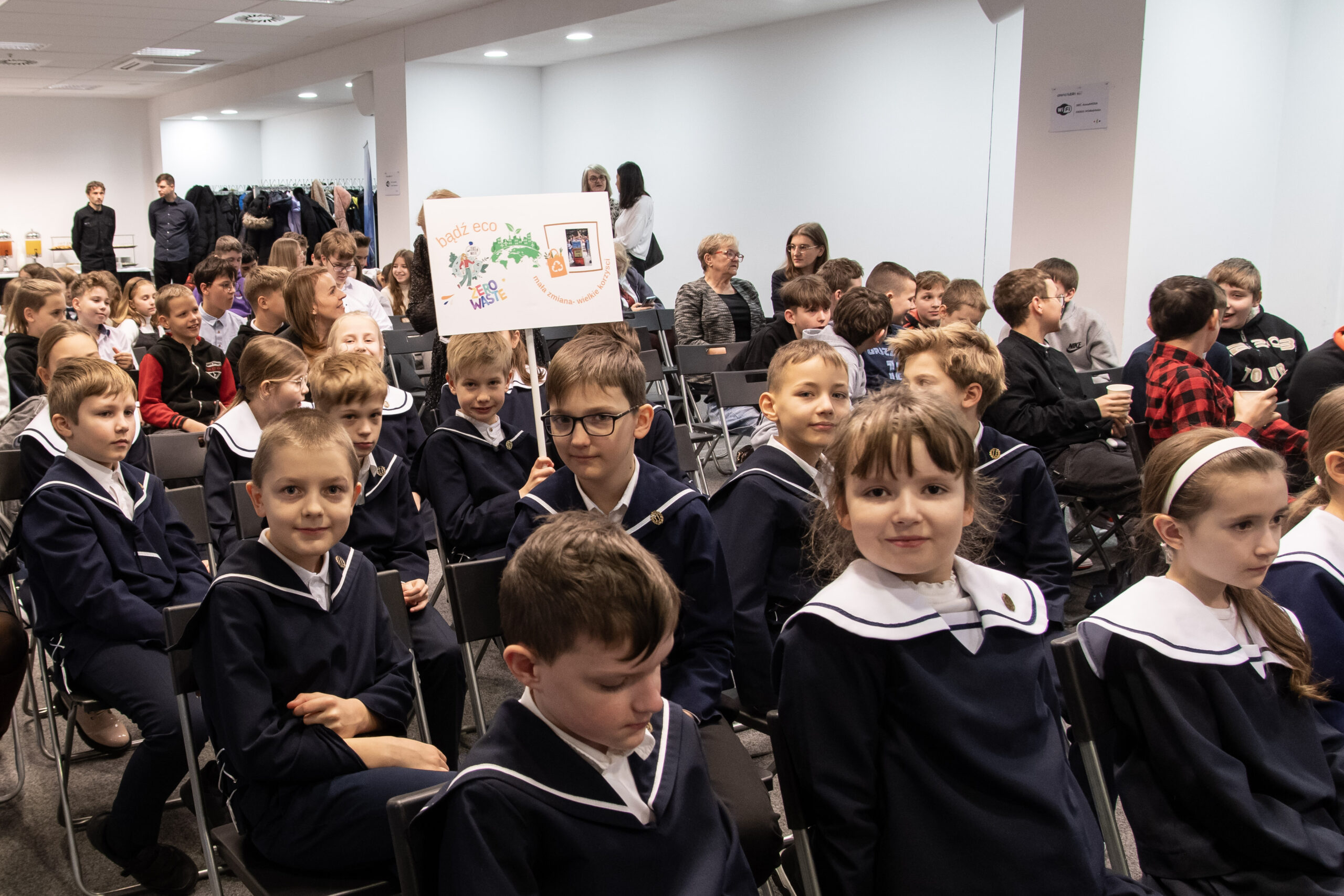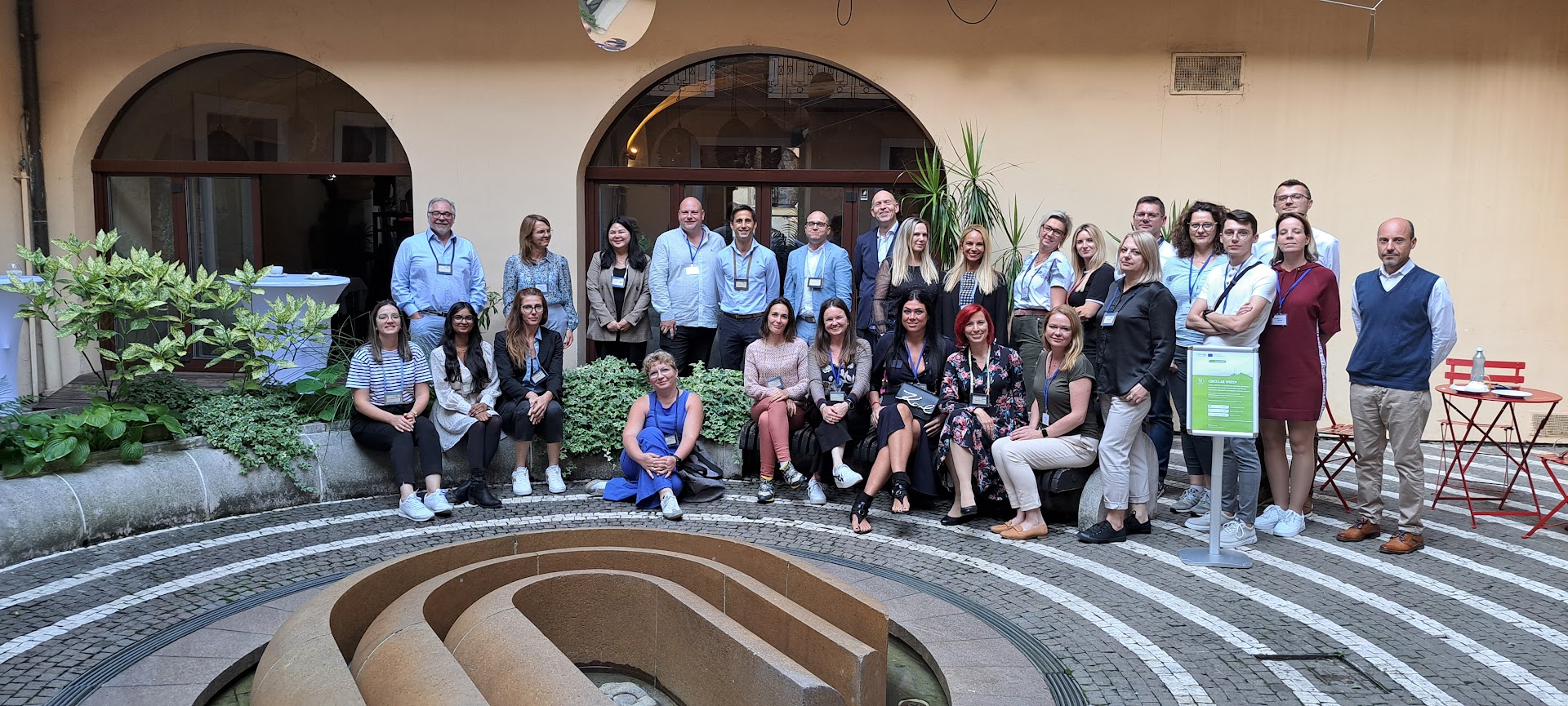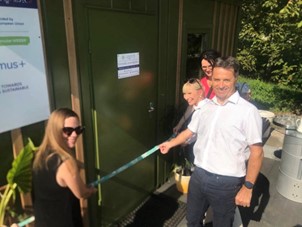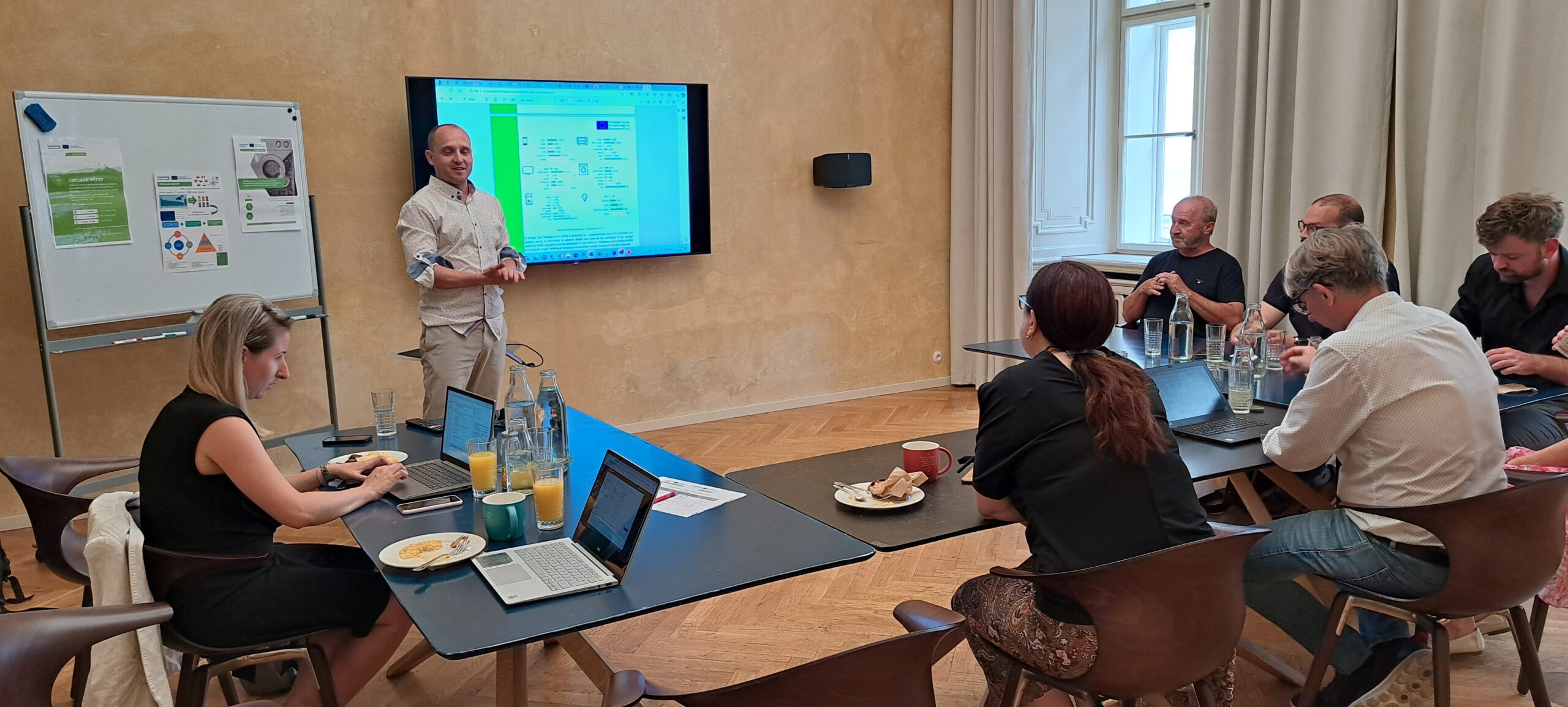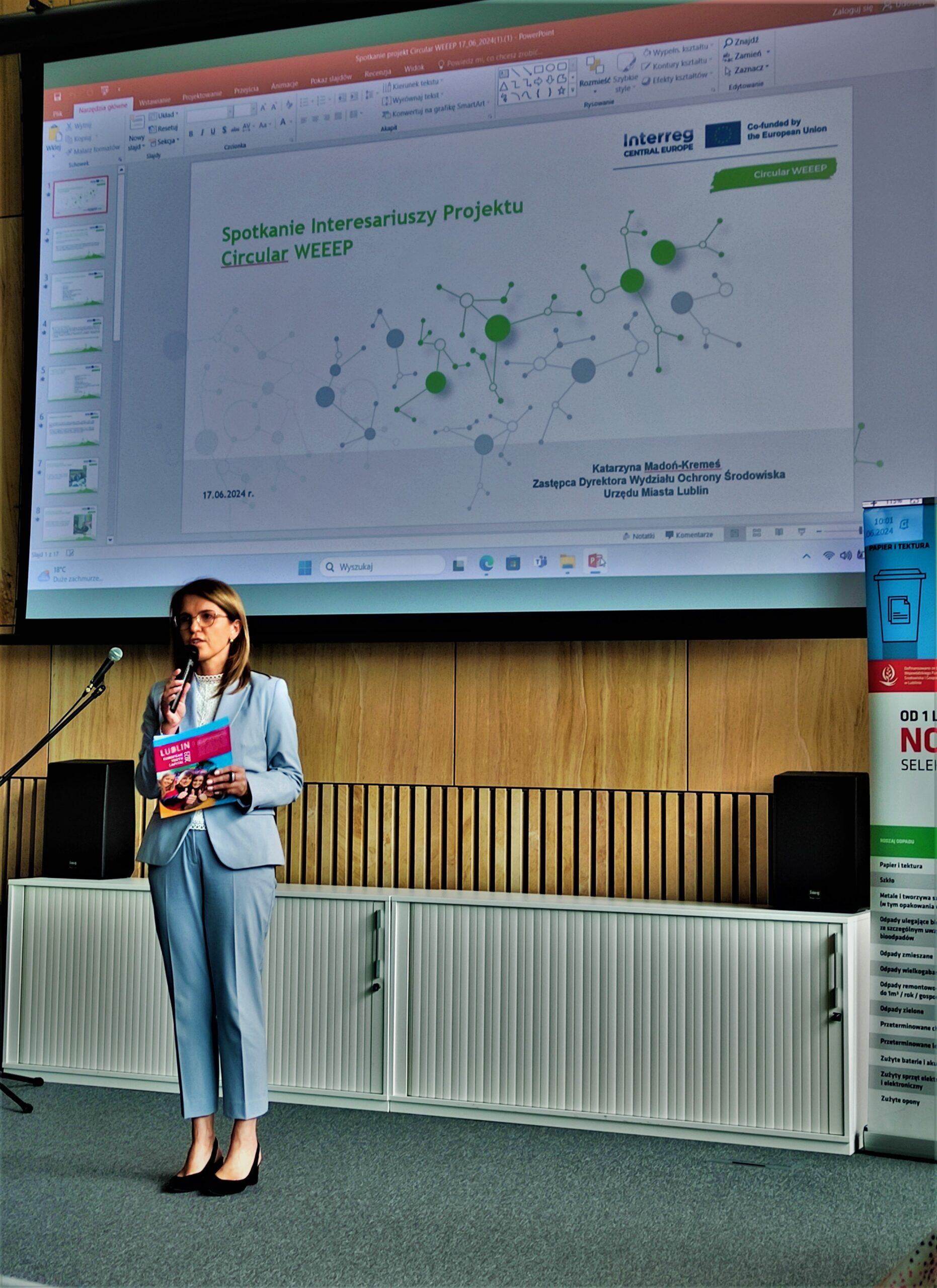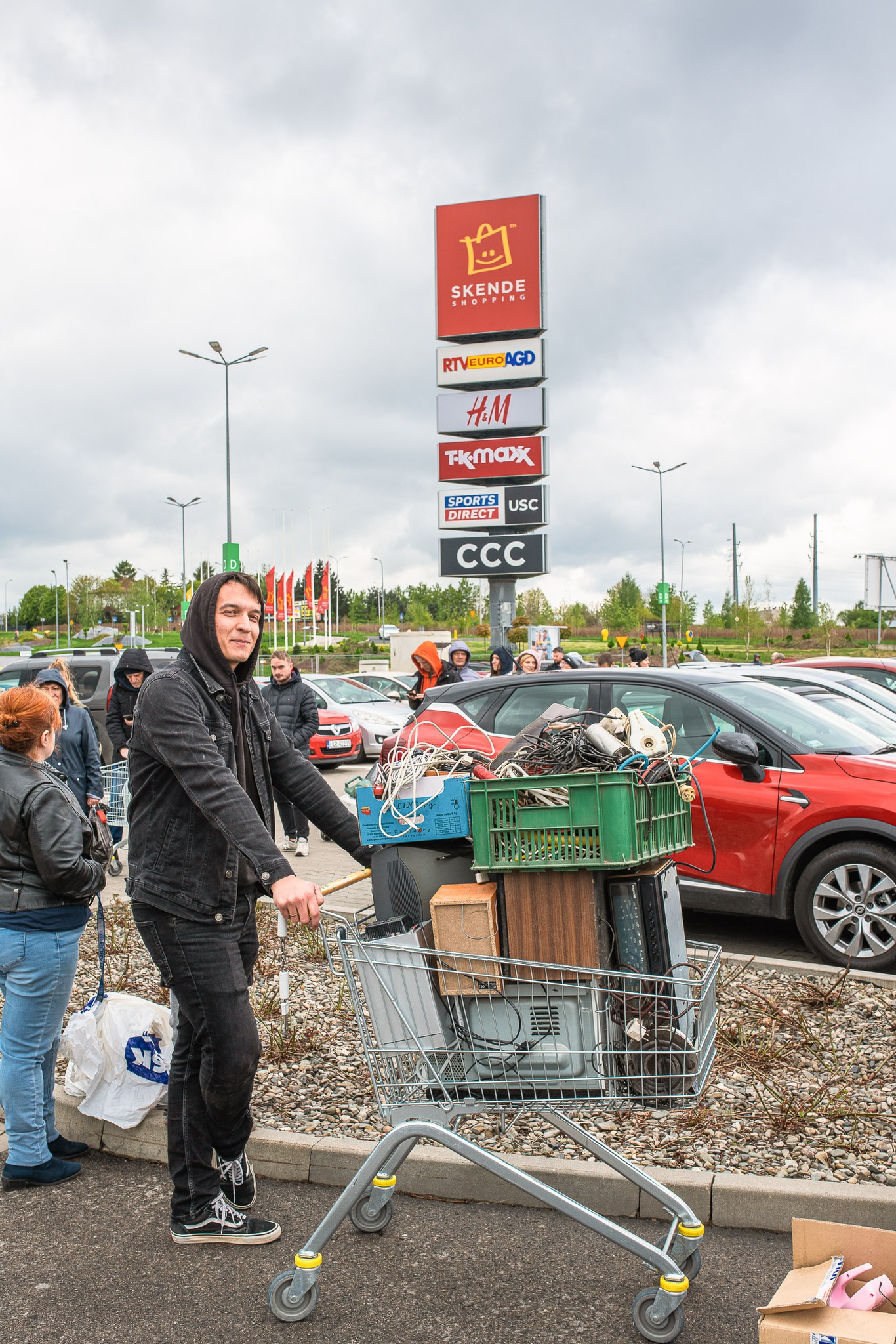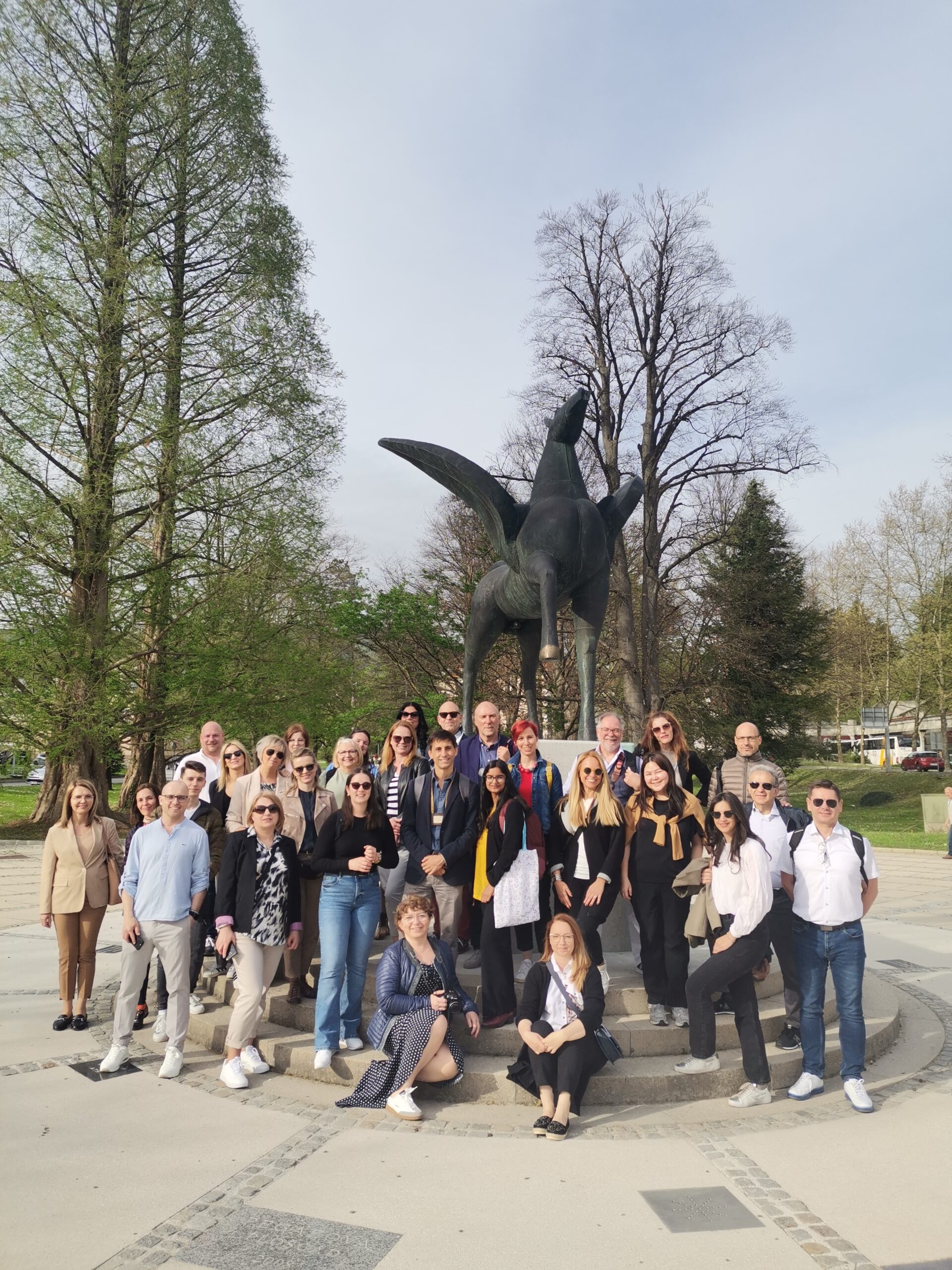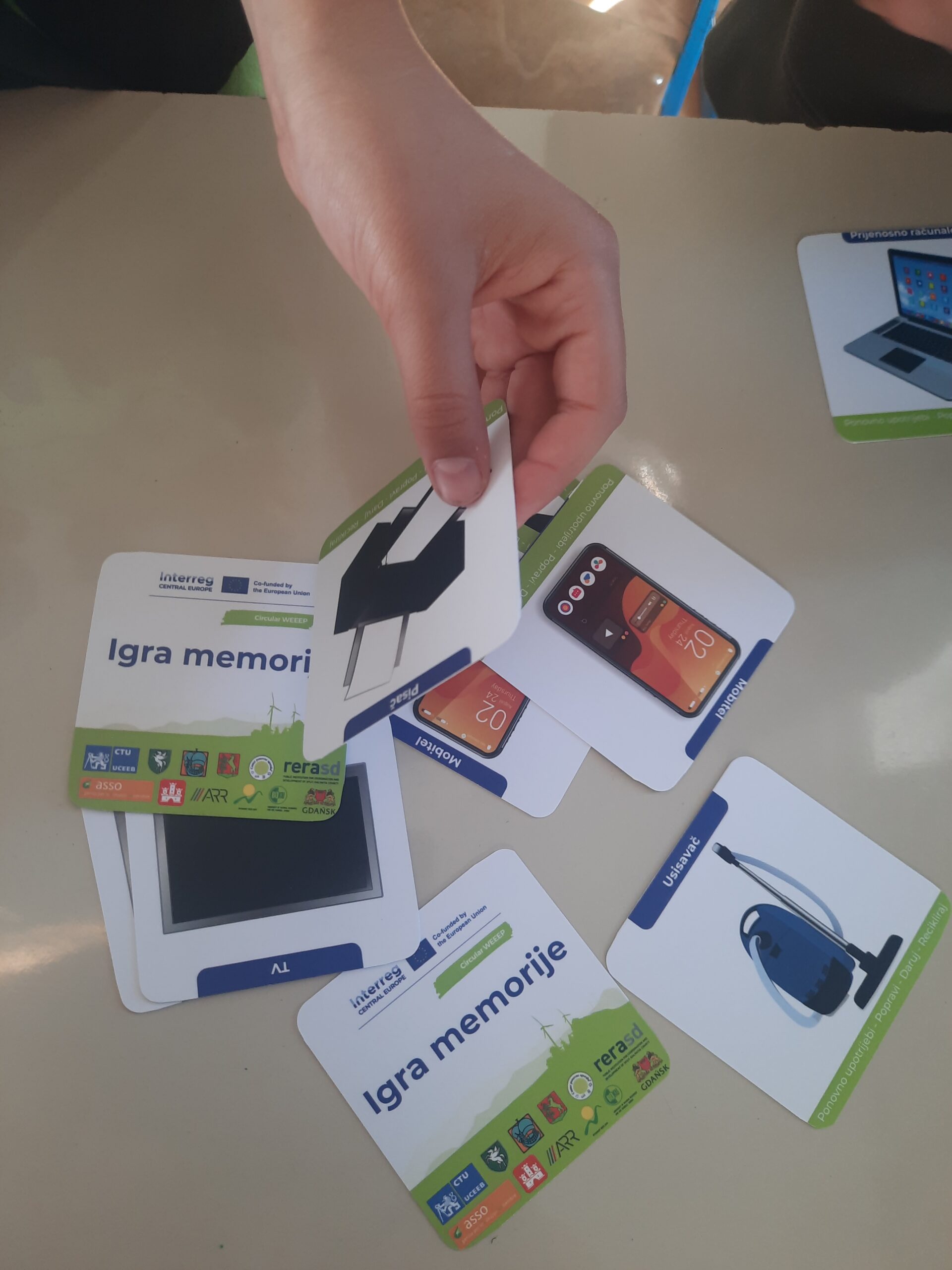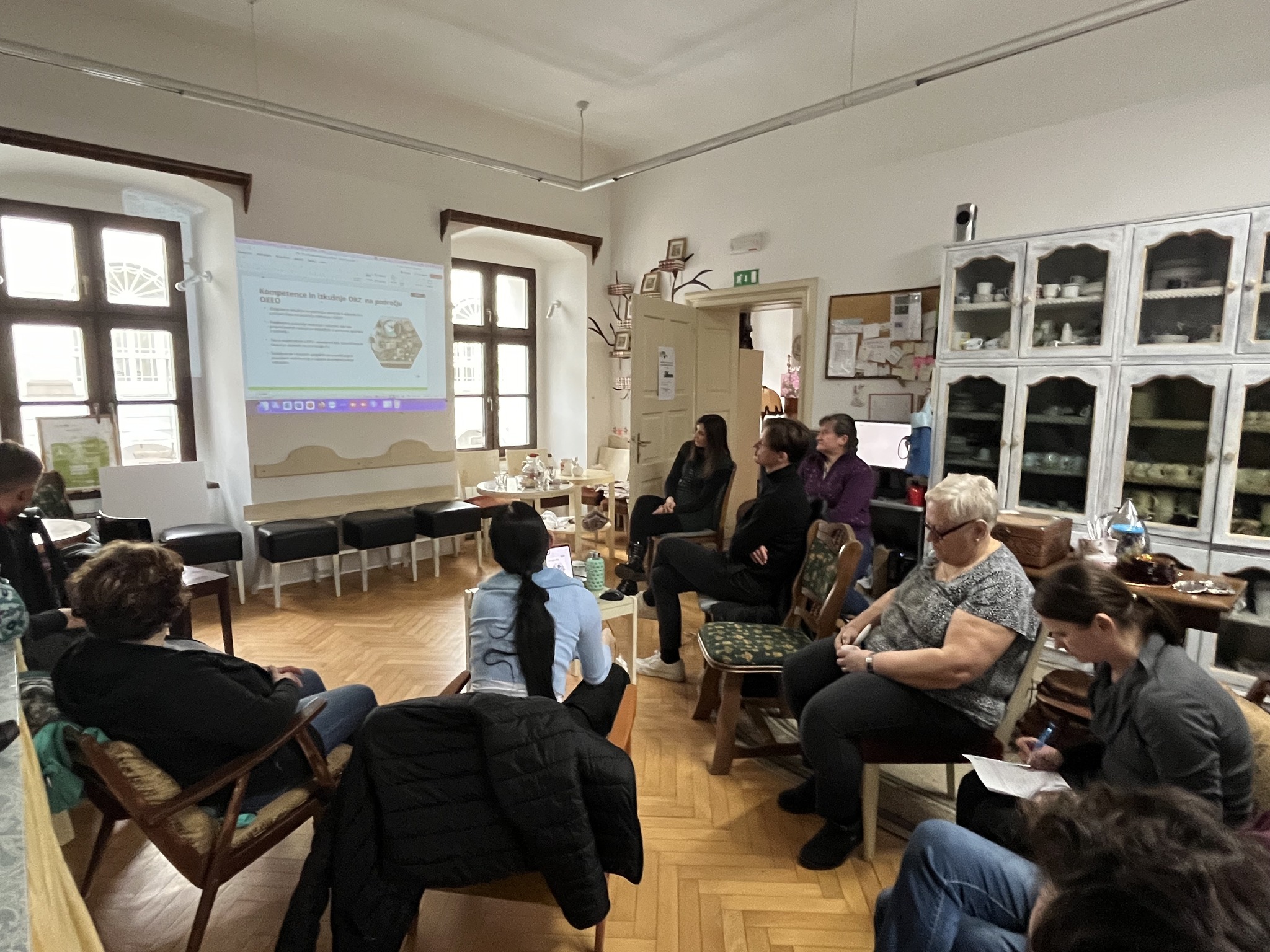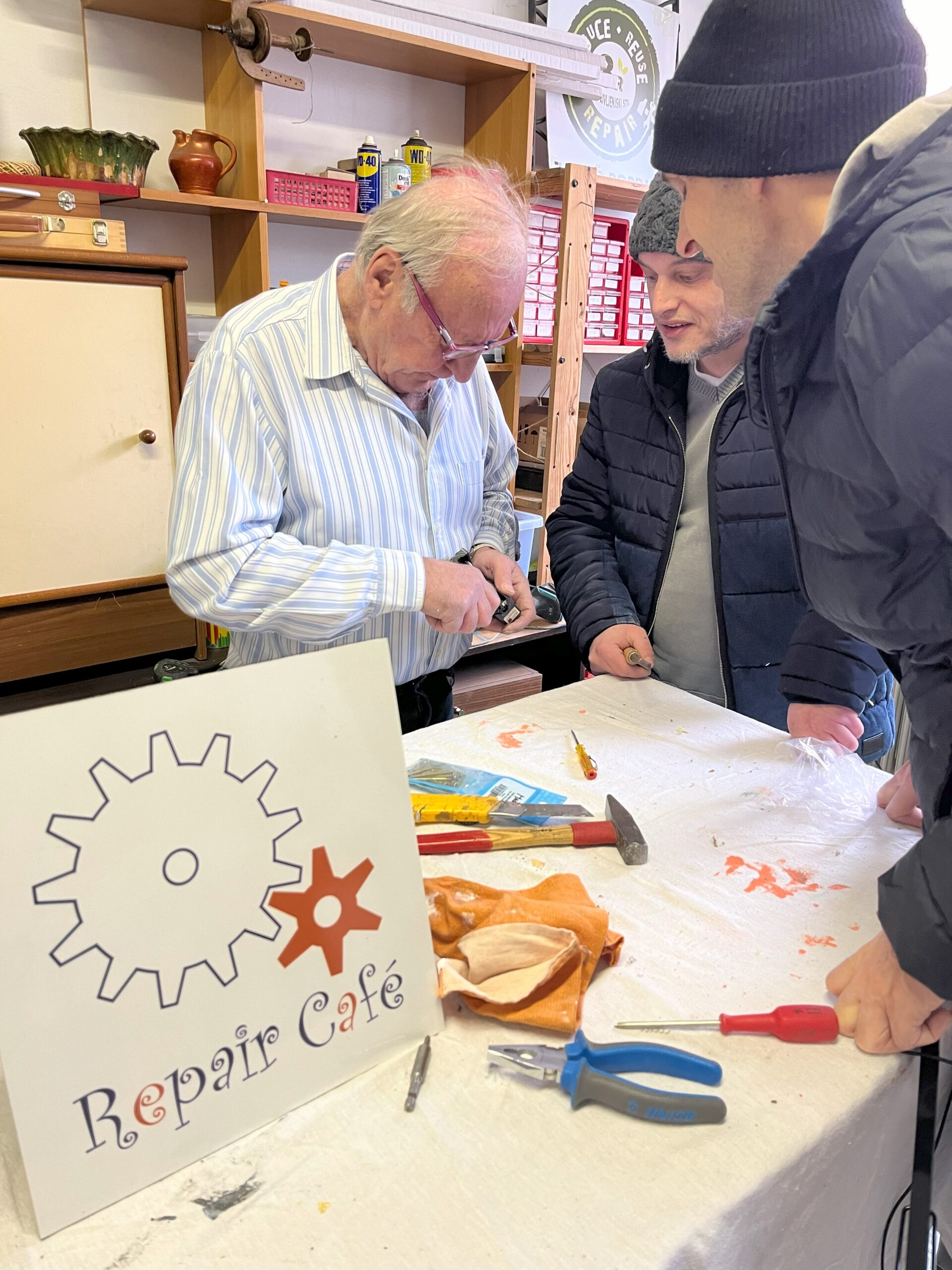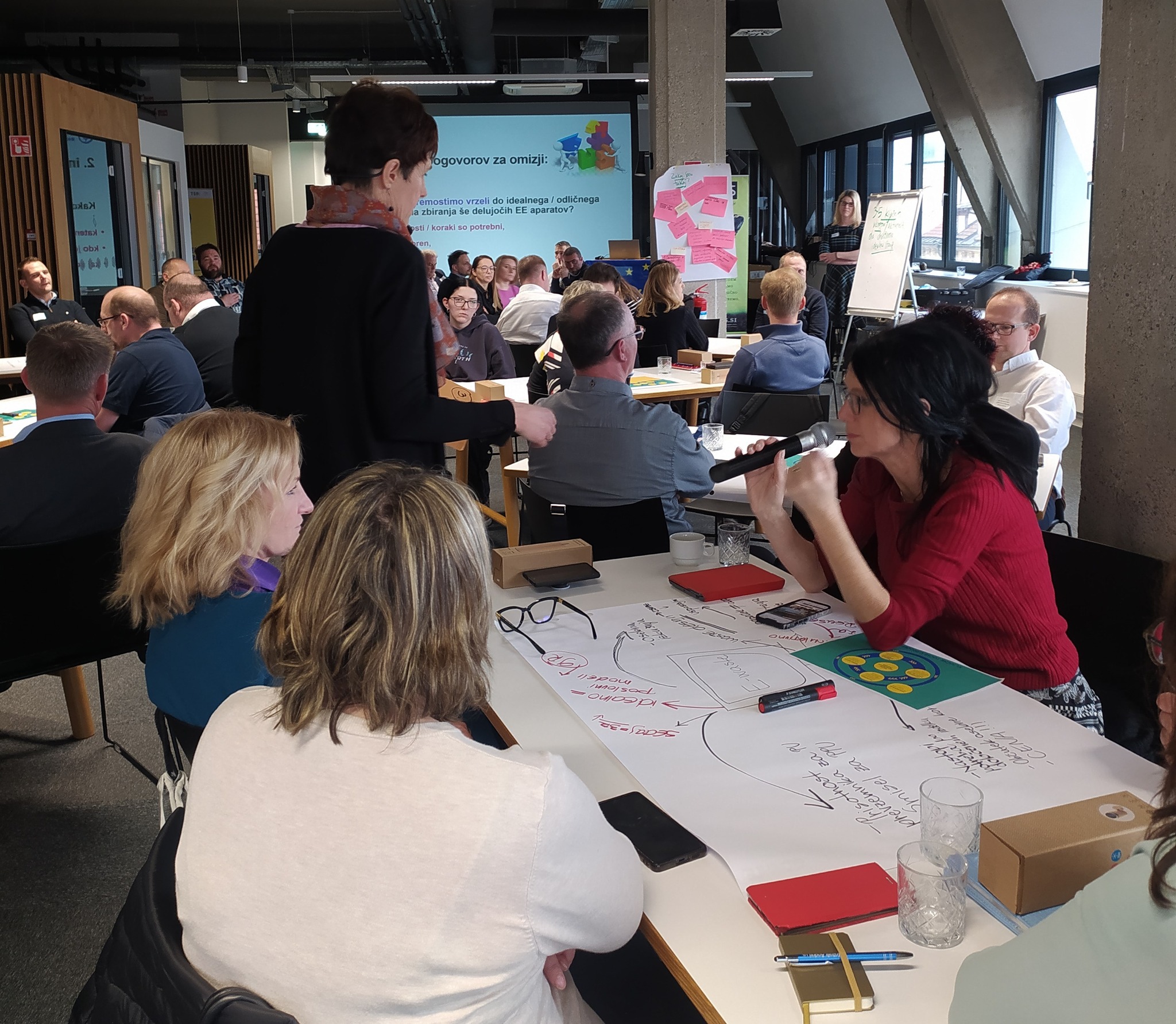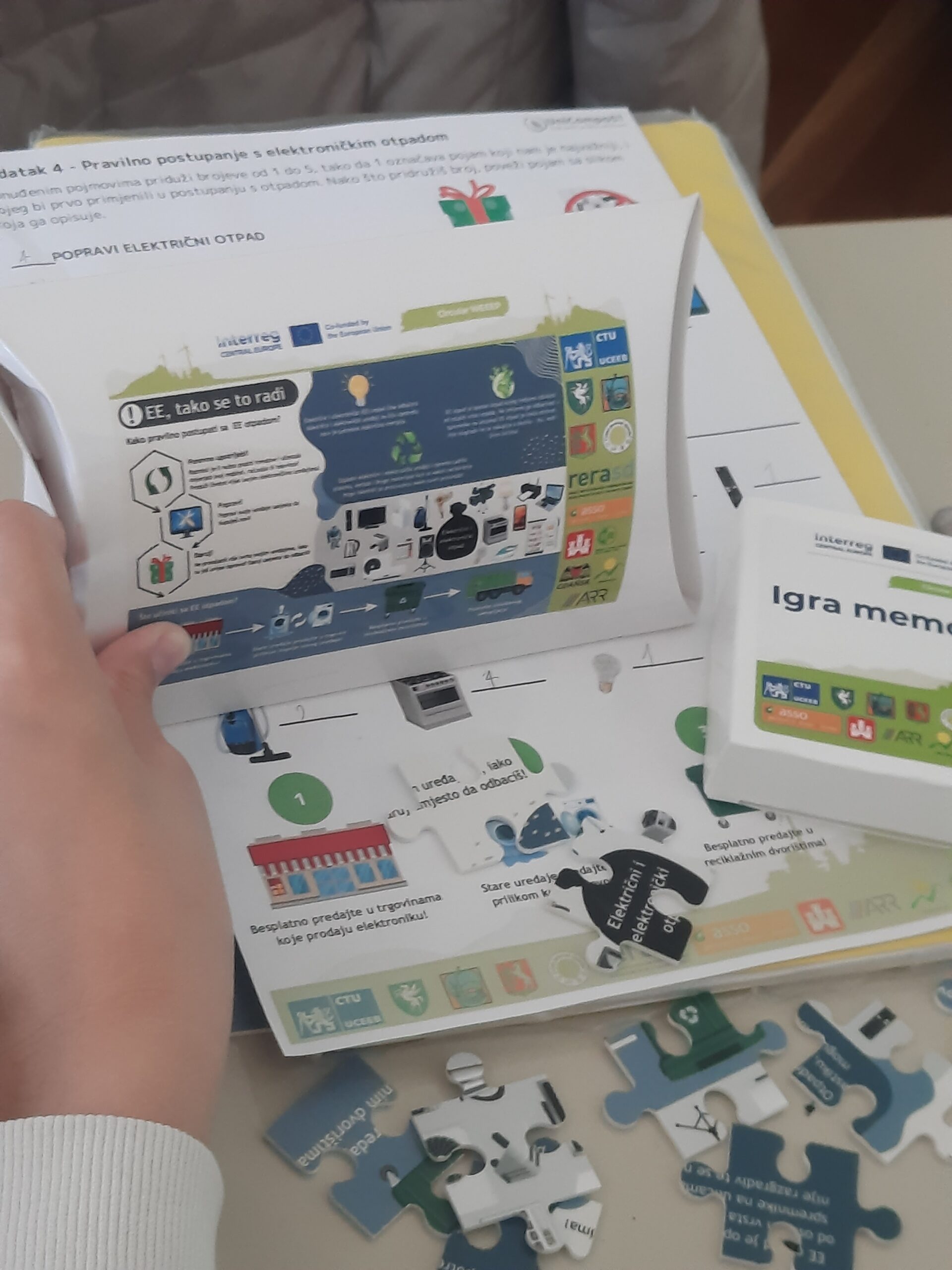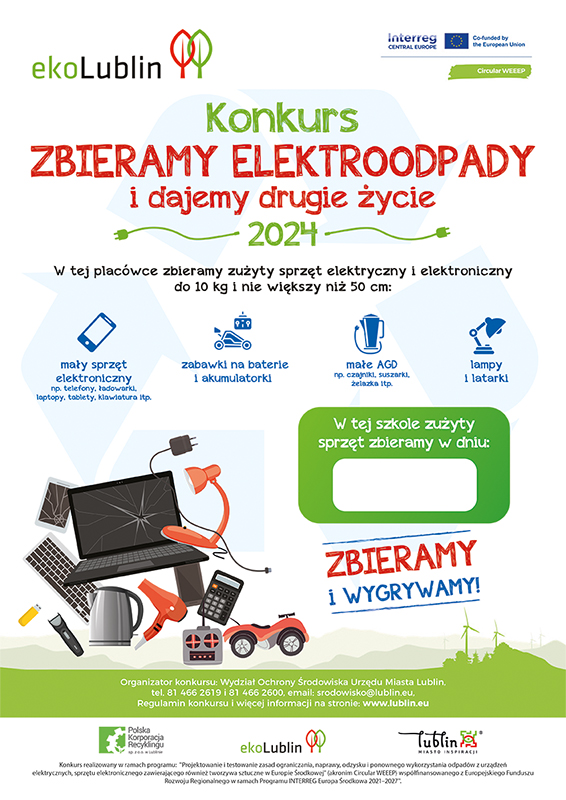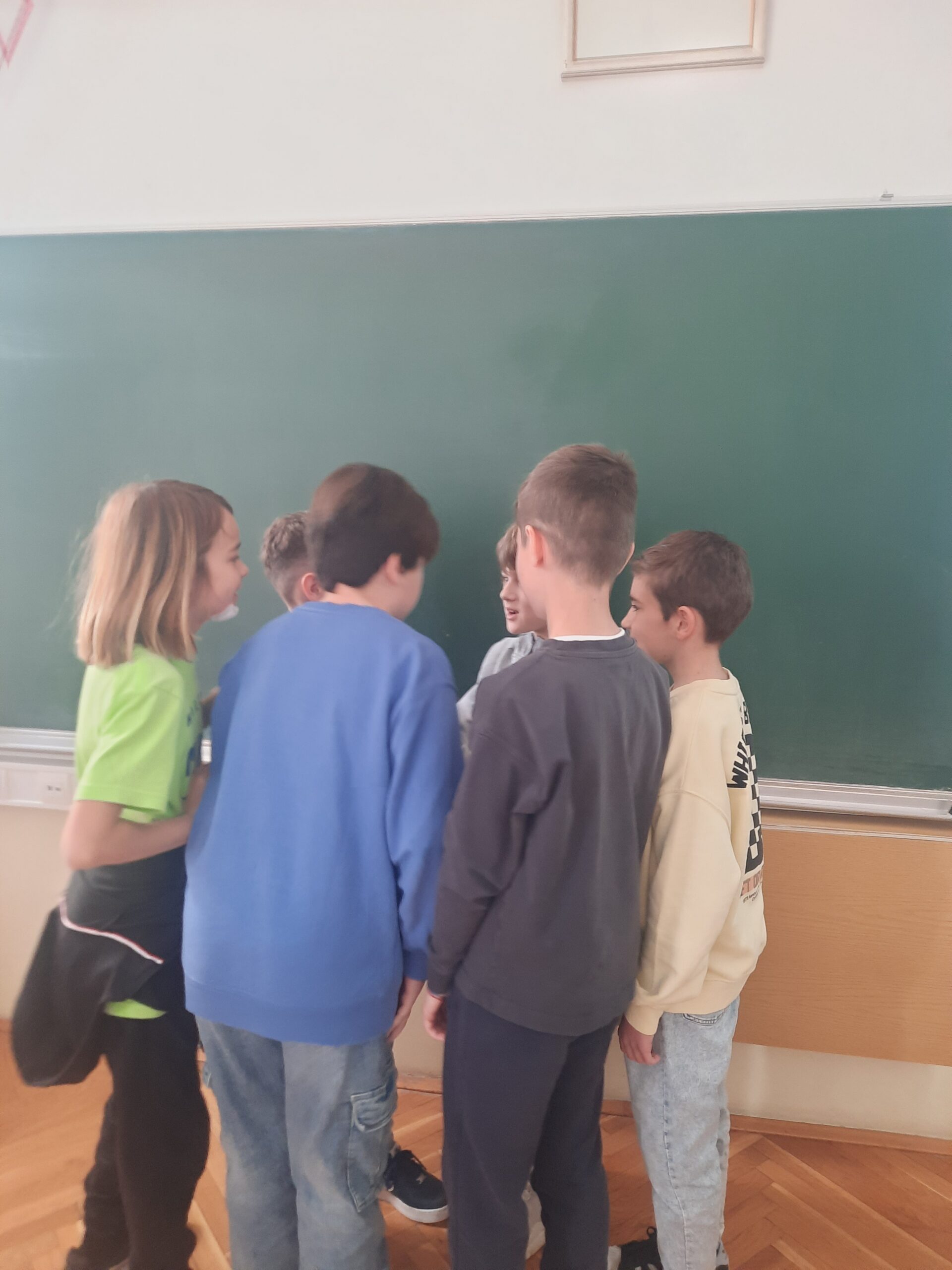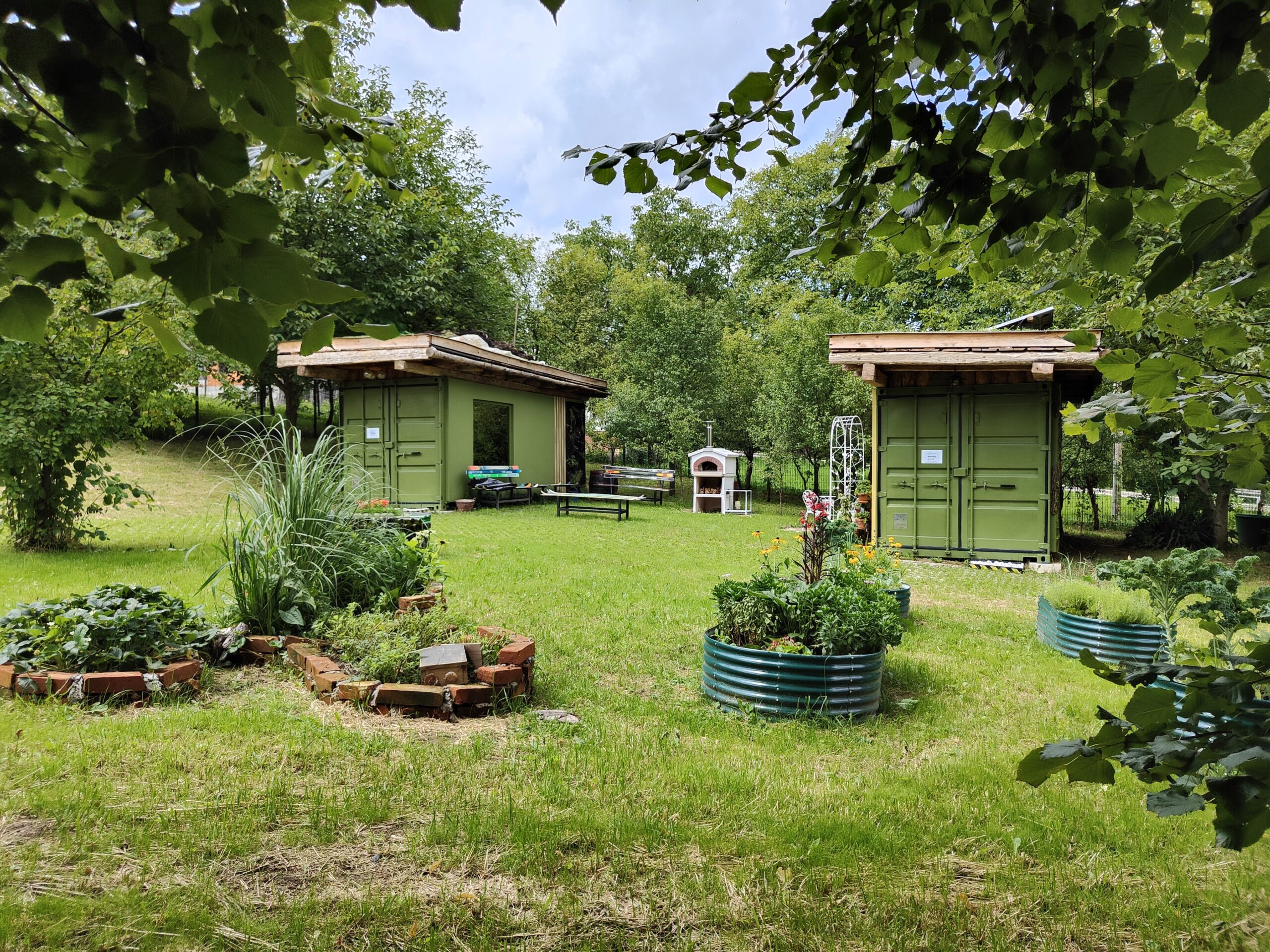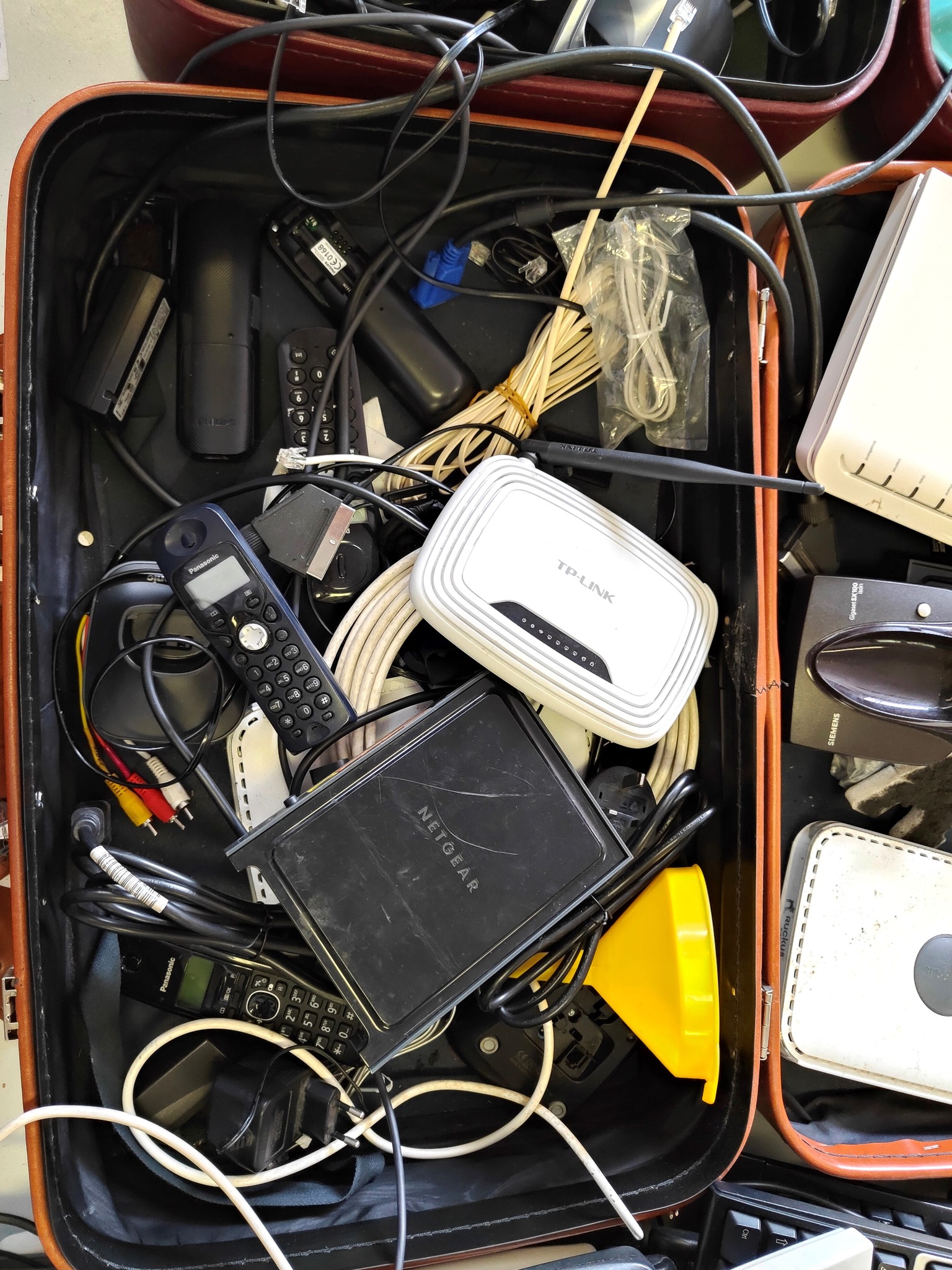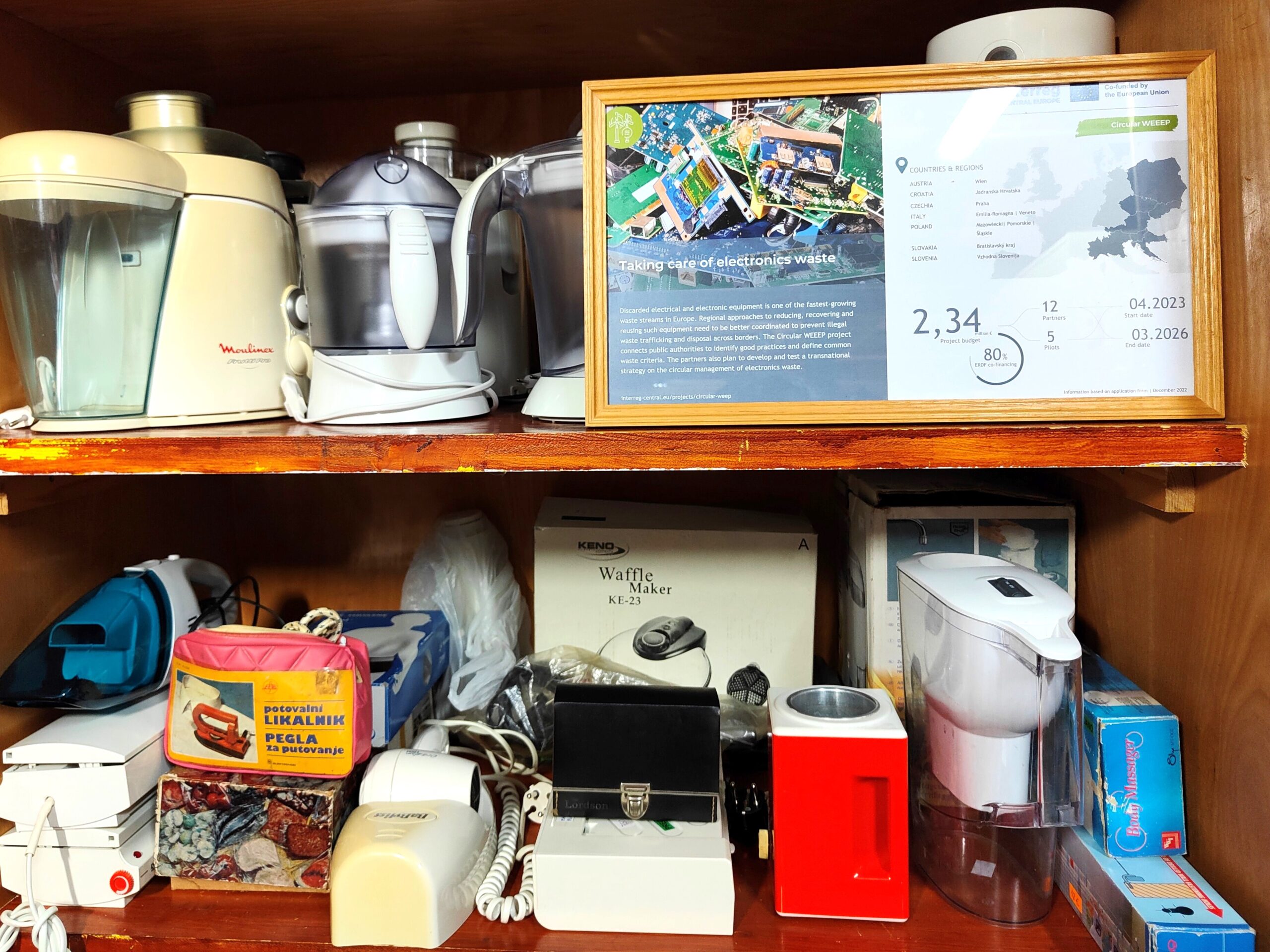Project overview
Design and test of policies for reducing, repairing, recovering and reusing waste from electrical, electronic equipment and plastic in Central Europe.
Discarded electrical and electronic equipment is one of the fastest-growing waste streams in Europe. Regional approaches to reducing, recovering and reusing such equipment need to be better coordinated to prevent illegal waste trafficking and disposal across borders. The Circular WEEEP project connects public authorities to identify good practices and define common waste criteria. The partners also plan to develop and test a transnational strategy on the circular management of electronics waste.
-
2,34m €
-
Project Budget
-
80%
-
of the Budget is funded by ERDF
-
7
-
Countries
-
10
-
Regions
-
12
-
Partners
-
5
-
Pilots
Duration
Start date
End date
Project progress
About the project
Project partnership
Project partners

Lead partner
Czech Technical University in Prague
University Centre for Energy Efficient Buildings
Project partner
47922 Rimini
3250 Rogaska Slatina
International Project Department
Starostwo Powiatowe w Bielsku-Białej
Lublin City Hall
20-109 Lublin
Department Water, Atmosphere and Environment; Institute of Waste Management
Community Facilities Management
Roadmap
Context
Waste of Electrical and Electronic Equipment (WEEE) is rapidly increasing in Europe. The WEEE Directive of 2019 mandates a minimum collection rate of 65% for WEEE. This is particularly challenging due to the varied directives and initiatives across different countries and regions, including Poland, the Czech Republic, Slovakia, Slovenia, Croatia, Italy, and Austria.
Specific problem
The Circular WEEEP areas face significant discrepancies in WEEE management practices and are further burdened by illegal WEEE shipments. Central European countries, reporting frequent violations over the past five years, are particularly vulnerable to illegal transfers, exacerbating the need for unified waste management criteria.
Idea
To combat these challenges, Circular WEEEP partners are collaborating to achieve the project objective. This initiative aims to harmonize local and regional WEEE management models, aligning with the EU Circular Economy Action Plan's "Circular Electronics Initiative" recommendations, through coordinated planning and promotion.
Solution
Partners will develop a Joint Strategy for Transnational WEEE management, implementing it through 6 Action Plans and testing 5 innovative pilot actions: WEEE design, WEEE collect/market, WEEE social, WEEE lives, and WEEE aware. These efforts will promote large-scale solutions and establish long-term commitments for transnational WEEE management cooperation.
News
Events
Pilot actions
Outputs

Jointly developed strategies and action plans
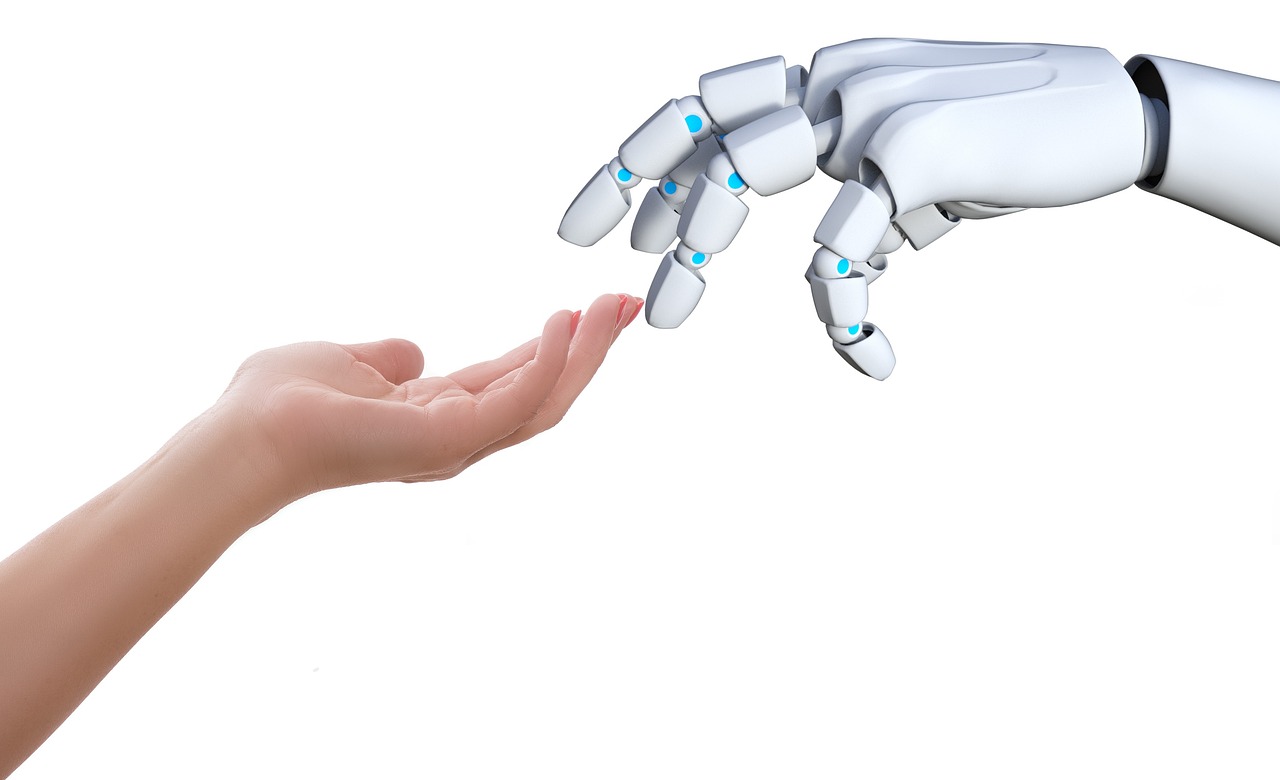
Enhancing sustainability: Jointly developed solutions
Circular WEEEP
The project lead partner is responsible for the content of this project website.

